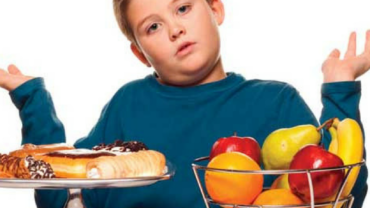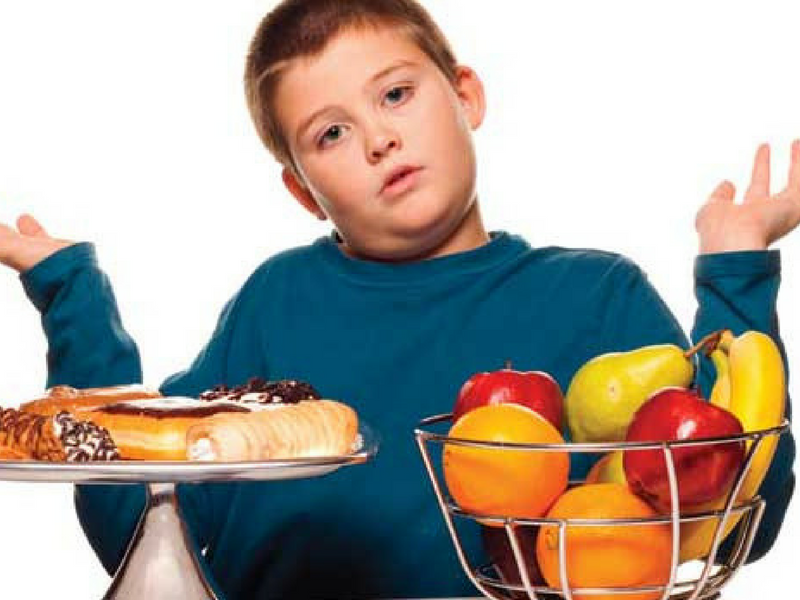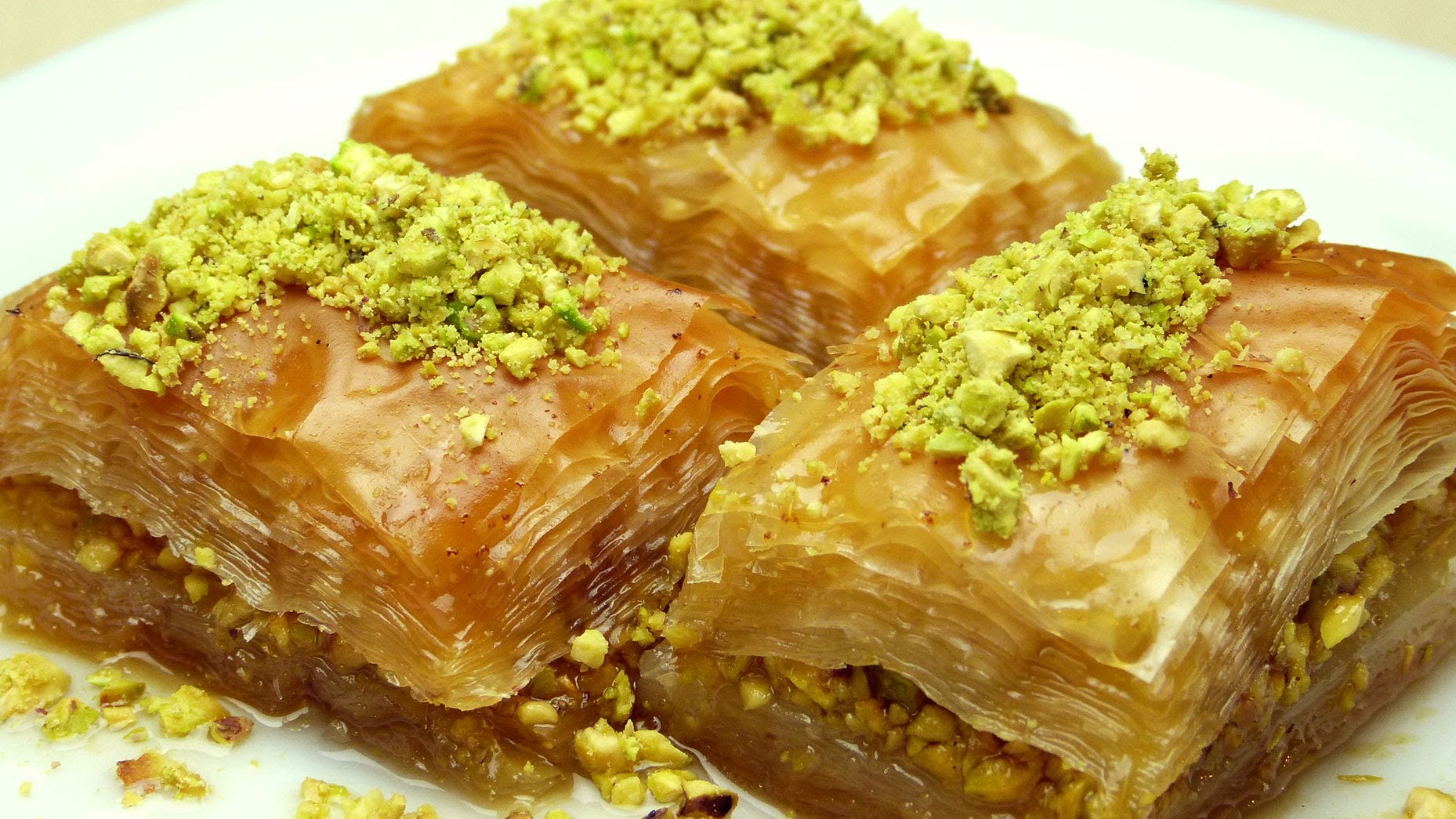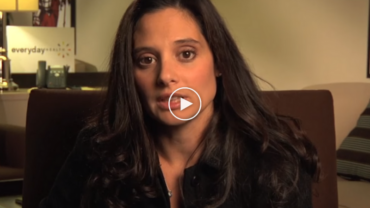As Eid al-Fitr (the festival of breaking fast) for all Muslims starts tomorrow, let us look at some useful tips to celebrate Eid for kids healthily.
Eid for kids is an extremely exciting time as it is celebrated with the abundance of kids’ favorite sweet dishes such as halva and baklava.
During Eid al-Fitr, kids are usually the ones who indulge in the sweet treats the most as chocolate and candies are some of the popular gifts to be given to kids during Eid al-Fitr.
It is important for parents to be more concern about their kids’ unhealthy diet during this period and to fight the risk of their kids from getting childhood obesity.
Check out this article now for what you need to know about fighting obesity in kids during Eid.
Via About Islam: This Eid, Begin Fighting Childhood Obesity
After a month of abstinence and self-restraint, `Eid Al-Fitr is celebrated with festivities of food.
Sweet dishes frequently play a central role in these feasts with hours of preparation going into the making of creamy halva, crispy baklava drizzled with honey syrup, and other delectable pastries.
Adults are not the only ones who enjoy such treats, and it is often the children who indulge in them the most. Popular gifts for children are chocolates, candy, and other sweets.
Therefore, it is not surprising that many youngsters gain excess weight during this blessed holiday in particular.
Worldwide Epidemic
According to the reports of the International Journal of Pediatric Obesity, childhood obesity is on the rise worldwide. The percentage of overweight children is due to increase dramatically in Southeast Asia and the Middle East.
A child is considered obese when he or she is well-above the recommended weight for his or her height and age (USA Today).
Overweight children are at risk for and susceptible to diseases that were once only limited to adults (such as diabetes, high blood pressure, heart disease and other ailments). They are also more likely to be overweight through their adult years.
Obesity Contributors
Although genetics may play a part in contributing to childhood obesity, most children are overweight because they eat in excess and exercise too little (Mayo Clinic).
Growing up in the midst of a fast-food culture, where one-third of children in the US on any given day eat fast food, has contributed to this phenomenon. The high fat, salt, and sugar content in fast food add on unnecessary and mainly empty calories.
With the advent of unlimited refills of soft drinks, which fast-food chains promote, children are consuming a huge excess of sugary liquids, which are detrimental to their health.
Children who are regular consumers of fast foods fail to make healthy food choices and end up eating far less fruits, grains, vegetables, and milk than they ought to (Davis).
Leading a sedentary lifestyle is another factor that contributes to childhood obesity. As watching TV shows and playing video games increasingly replace outdoor play, children are becoming less and less active and thus are not able to burn off all the extra calories they consume.
Lack of direction and interest from parents is another important factor that causes unhealthy eating patterns in children.
Treatment and Prevention
Instilling healthy eating habits and encouraging exercise is the best way to combat obesity in children and adults alike.
It is up to the parents to regulate what their children consume, and it is their responsibility to promote healthy food choices from a tender age for their young ones.
Children should be taught that their body is a very valuable thing that has been entrusted to their care and that it is their obligation to look after and care for it.
Making a trip to the grocery store together is an effective way to teach children how to choose and recognize healthier food options.
Remind them that Almighty Allah mentions in the Qur’an, “Eat of the good things We have provided for your sustenance, but commit no excess therein.” (Suart Taha: 20:81).
Encourage them to read the nutrition label and to look out for ingredients they should avoid such as high fructose corn syrup, preservatives, and artificial colorings.
Talk to them about the importance of eating raw fruits and vegetables, and select healthier snack alternatives (such as nuts and whole-grain crackers) to chips and candy.
Limit your trips to fast-food restaurants and make an effort to eat home-cooked, nutritious meals instead. Teach your children the hadith in which Prophet Muhammad (peace be upon him) explained that if one is to fill his stomach, then only a third should be filled with food, a third for drink, and a third should be left empty (At-Tirmidhi).
Do not encourage your children to eat till they are full, which many parents forget to do. Children should be encouraged to stop eating when they are satisfied, not satiated.
Eat together as a family, and make mealtimes enjoyable. Do not waste this special bonding opportunity by eating in front of the TV or individually.
Encourage your children to play outside and engage in physical activity instead of sitting at home and watching TV or playing video games.
Go on nature walks together, and make it an opportunity to both get some exercise and talk about Allah’s creation and His signs.
Enroll them for extracurricular activities such as sports and crafts. Make these endeavors fun, and your children will not only thoroughly enjoy themselves but will also get some much-needed exercise.
New Beginning
Make this `Eid the start of a new healthy lifestyle for you and your children. Instead of gifting your children chocolates and video games, gift them with your time instead and go out and do fun family-oriented activities together.
Other good gift choices are sports equipment such as tennis rackets, basketballs, footballs, and roller blades, which will encourage them to engage in physical activity. A membership to a local fitness center is a good idea, and many offer classes specifically for children.
After a long Ramadan, we deserve to treat ourselves. Every `Eid celebration calls for sweets and desserts. However, you can limit their fatty content by cutting down on sugar and butter, and by using low-fat versions of milk and cheese while preparing them.
Reducing the serving sizes and limiting the quantity you make will also prevent overindulgence. Adding fresh fruits to your desserts and as a garnishing will provide nutritional benefit.
Low-Fat Recipes
A healthier alternative to commonly prepared `Eid desserts that allows you to use all the leftover dates you may have from Ramadan is the following:
Date Treats
Ingredients
- 20 dates (pitted)
- 2 tbsp. of butter
- ¼ cup of milk (reduced fat-condensed)
- ¼ cup of milk (low fat)
- 10 tea biscuits (crushed)
- ½ cup of nuts (chopped)
- ¼ cup of coconut (desiccated)
- 2 tsp. of sesame seeds (optional)
- Coconut powder (for garnishing
Method
In saucepan, melt butter. Add dates, and soften. Add condensed milk and low-fat milk, and continue to soften dates on low flame. Turn off flame, and add crushed tea biscuits, coconut, nuts, and the (optional) sesame seeds.
Mix into a dough. Spread mixture onto a tray to cool. Roll into 1-inch-diameter balls. Coat with coconut powder. Refrigerate immediately.
Baklava
Baklava is a staple at every `Eid dinner and the following is a low-calorie, yet just as delicious, version of this rich dessert:
Ingredients
- ½ lb. of pistachio nuts (ground)
- 3 tbsp. of sugar
- ¾ tsp. of cinnamon (ground)
- 1 ½ tbsp. of rose water
- ½ lb. of phyllo dough
- ½ cup of margarine (low-calorie, melted)
- Rose water syrup
Method
Combine pistachio nuts, sugar, cinnamon, and rose water in a small bowl. Using half of phyllo sheets, place three sheets in bottom of lightly greased 13×9-inch baking sheet. Brush with some of the margarine.
Sprinkle evenly with nut mixture. Place remaining sheets over nut filling, brushing after every third sheet and top sheet.
Cut baklava at 1-1/2-inch intervals diagonally to form pattern of about 35 diamond shapes. Bake at 400°F/200°C for 25 minutes or until golden. Place on wire rack to cool. Drizzle rose water syrup evenly over top, and allow to soak several hours.
Each piece of baklava contains 85 calories and 5 grams fat. (Orchekowski)
During Ramadan, we were given the opportunity to cleanse and renew ourselves, both spiritually and physically, thus there is no better time than now to embark upon a healthier future for you and your family.





